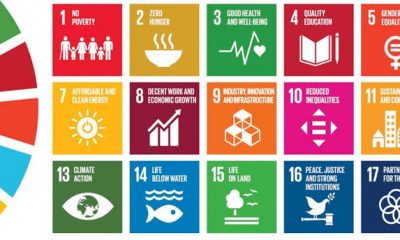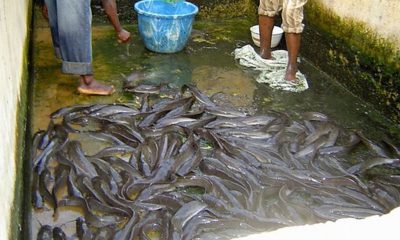Climate change
PLANET EARTH IN TROUBLE AS CLIMATE CRISIS STILL DEFIES GLOBAL EFFORT.

…. At WufasAgronet, we are Food Security (processing) Advocates.
✅Earned FAO, WFP, WORLD BANK, IFAD, IDA, IMF, UNSDG, USAID,UN, ROCKEFELLER FOUNDATIONS, BBC NEWS, JAGABAN ARMY, PUNCH NEWSPAPERS, GUARDIAN Newspapers,PUNCH NEWSPAPERS, Today Reporters, Ripples News, BBC NEWS, AIT Online etc TopFan Barges.
✅Member NAAJ, PAAJ, IFAJ AND AFAN.
✅CONSULTANCY SERVICES IN HUMAN CAPITAL AND VALUE CHAIN DEVELOPMENT CONSULTANCY IN FOOD PROCESSING TECHNOLOGY.
GLOBAL OUTLOOK.
The global community has experienced periods of optimism and aspirations in the run up to various Conferences of the PARTIES (COP) to UN Climate change, with pledges for less carbon emissions increase investment in renewable energy and plan to safe guard vulnerable areas but not much action comes up, it’s becoming worryingly clear that the climate crisis continues to defy global efforts aimed at mitigation adaptation.The global community is still having difficulty making positive headway in the fight against the looming calamity of climate crisis despite enormous pledges, promisesand and agreements.
IMPLICATIONS
Without overemphasizing the urgency we have in place, rising global temperatures (heatwaves) , frequent and severe natural disasters, droughts, permafrost melt, wildfire and ocean acidification are all signs of a planet in trouble. The overwhelming body of scientific evidence indicates that human activities particularly are responsible such as the combustion of fossil fuels, greenhouse gases emissions amongst others are responsible.
It’s believed that the absence of legally binding agreements and enforcement mechanisms is an obvious obstacles to effective global action. The Paris Agreement that brought the (NDC) Nationally Determined Contributions seems toothless as there are no penalties for non-compliance.
DISPROPORTIONATE TASKs.
The industrialized world has historically been the main source of greenhouse gases emissions, hence, developing countries legitimately argue that they should shoulder larger portions of the financial and technological burden, but because of the slow pace of resource sharing and technology transfer, vulnerable nations are left to deal with the effects of crisis they played lesser role in creating.
Beyond unnecessary rhetorics the international communities should take cogent actions at reducing emissions, invest in infrastructure for renewable energy, priorities given to actions that will create human adaptation to climate action.
As collective efforts of Individuals, Governments, Businesses and people are needed to to incorporate sustainable practices into their daily activities. Climate change action is an urgent matter demanding prompt and determined response.
At WufasAgronet, we are competent and reliable Food Technologists into Human Capital and Value Chain Development Consultancy in Food Processing technology training the teeming youthful population including teirary institutions graduates in Global Competitiveness and International Best practices in Food Processing technology. Contact: email wufasagronet@gmail.com
Climate change
ENVIRONMENTAL, ECONOMIC & SOCIAL BENEFITS OF PV SYSTEMS.

…. @WufasAgronet, we are Food Security (processing) Advocates.
✅EARNED FAO, WFP, WORLD BANK, IFAD, IDA, IMF, WORLD ECONOMIC FORUM, ROOKEFEELER FOUNDATIONS, BBC NEWS, JAGABAN ARMY, PUNCH NEWSPAPERS, GUARDIAN NEWSPAPERS, TODAY REPORTERS, RIPPLES NEWS etc TopFan Barges.
✅Member NAAJ, PAAJ, IFAJ AND AFAN.
✅ Consultancy Services in Huma Capital and Value Chain Development in Food Processing technology.
SOLAR Photovoltaic (PV) systems have lately met the energy demand of several African countries, making them an increasingly desirable option to fossil fuels. Because of its abundant sunshine, high energy use and limited access to power. Africa is a significant market for solar energy. Particularly in rural communities many of which are not connected to the national grid.
THE ADVANTAGES.
One of the key advantages of solar PV systems in Africa is the enhanced availability offered. Many African countries suffer from unstable or inadequate energy issues. Solar PV systems provide a decentralized and dependable answer to this problem, allowing household and businesses to generate electricity., minimizing dependency on centralized power networks. Solar PV systems can expand power energy access to places not covered by the existing energy infrastructure. Solar PV can. attuned the Inadequacy of the national grid making PV systems installation an appealing choice. Rather than relying on the use of traditional fuels such as kerosene or wood for lighting and cooking. Solar PV systems provides a clean and economical alternative to significantly improving the quality of the life.
COST
Another significant advantage of solar PV systems in Africa is the relative low cost. Although, the initial expenses of establishing a PV systems can be substantial, the long term benefits of lower energy costs and improve energy independence making it an attractive investment. The abundance of solar resources might help offset the initial costs of solar PV systems. Households and companies can reduce energy costs and boost energy security by generating power with solar PV systems.
ENVIRONMENTAL IMPACT
Solar PV systems have significant positive environmental impact. The production and use of non-renewable energy sources like coal and oil release large amounts of carbon dioxide and other Green house gases, into the atmosphere contributing to global climate change. Additionally, the extraction and transportation of fossil fuel can damage local ecosystem and water ways.
DEPLOYMENT OF SOLAR PV SYSTEMS IN AFRICA
Many African countries government have implemented policies to promote the adoption of solar PV systems in rural areas attracting significant international investment. Such as Rwanda, Morocco, Kenya, Ghana and South Africa.
At WufasAgronet we are competent and reliable Food Technologists into Human Capital and Value Chain Development in Food Processing technology. Contact us email wufasagronet@gmail.com
Climate change
EFFECTIVE WASTE. POLICY AND MANAGEMENT.

An effective waste policy will provide the guidelines for everybody and make people know the appropriateness of waste disposal.
….. @WufasAgronet, we are Food Security (processing .) Advocates.
✅Earned FAO, WFP, ROOKEFEELER FOUNDATIONS, WORLD BANK, IFAD, IDA,(world bank group), UNSDG (action campaign ), UNs, WORLD Economic Forum, BBC NEWS, Jagaban Army, Punch,Guardian, National Economy Newspapers, Today Reporters, Ripples News etc TopFan Barges.
✅Member NAAJ PAAJ, IFAJ AND AFAN.
✅Consultancy Services in Human Capital and Value Chain Development in Food Processing technology.
WASTE MANAGEMENT
Waste generation and management are priority areas for any administration of the country, in which the process of evolving a mechanism that will allow a workable policy on waste managemen be made.
Citizens must be educated on the ” collect and dump” approach and incorporate meaningful strategies into the national waste management streams for the development of the country. The effective utilization of resources from waste will empower the people by tapping into the valuable aspects of waste management. It should be known that the so-called waste is no waste at all but ways through which other useful resources can create wealth..
NATIONAL POLICY
It’s assumed that only about 40% of generated waste is collected in Nigeria.
To collect about 90 – 95% a national waste policy is required.
An effective waste policy will provide the guidelines for everybody and make people know what is expected of them in terms of generated waste.
Waste generation and management has become an important issue in building a sustainable and liveable cities in the world which should not be ignored.
Efficient waste management impact on public health, economy and social well-being of
the people.
MUNICIPAL WASTES
Municipal waste are waste collected and treated by or for municipalities, cover wastes collected from households, similar wastes from commerce and trade premises, office buildings. institutions and small businesses.
WORLD BANK
World estimated waste generation by countries and regions of the world (.2017) , Nigeria’s total generated waste estimate is 25million tonnes annually of which urban waste generation per day is 40.959 tonnes per day. It is estimated that it will grow by about 147%(101,307tonnes per day. .) come 2027 of which per capital waste generation is also expected to grow from 0.36kg/capital /day to 0.8kg/capital /day.
Without substantial Infrastructure, investment, process management and policies. the effects of continuous growth of municipal waste can be overwhelming and pose great danger in the Nigeria populace.
At WufasAgronet, we are competent and reliable Food Technologists into Human Capital and Value Chain Development Consultancy in Food Processing technology.
We train Food handlers in Global Competitiveness and International Best practices International Best practices in Food Processing technology.
Contact email. wufasagronet@gmail.com
-

 Environmental3 years ago
Environmental3 years agoOPINION: AN ACCESSMENT OF NIGERIA’S PERFORMANCE IN THE OPTICS OF THE UN 17 SUSTAINABLE DEVELOPMENT GOALS AGENDA 2030. ( Periodic quaterly review & update — ( September ’22)
-

 Food Security3 years ago
Food Security3 years agoREALITIES OF LARGE SCALE INTEGRATED AGROPRENUERAIL FARMING AND FOOD PROCESSING BUSINESS IN NIGERIA. (Update)
-

 Food Security3 years ago
Food Security3 years agoEXCITING FACTS ABOUT RANCHING
-

 Food Security3 years ago
Food Security3 years agoTOP SEVEN AGRICULTURAL COMMODITIES WITH HUGE UNTAPPED POTENTIALs – update
-

 Food Security3 years ago
Food Security3 years agoMITIGATING THE MENACE OF CLIMATE CHANGE THROUGH GREENBOND ISSUANCE.
-

 Food Security3 years ago
Food Security3 years agoFISH PROCESSING TECHNOLOGY
-

 Food Security3 years ago
Food Security3 years agoTHE IMPENDING GLOBAL FAMINE FROM THE PERSPECTIVES OF THE WORLD INSTITUTIONAL LEADERS.
-

 Food Security3 years ago
Food Security3 years agoTHE ROLE OF E -COMMERCE IN SYNERGISING AGRICULTURAL VALUE CHAIN DEVELOPMENT IN AFCTA IS SINE QUA-NON.
